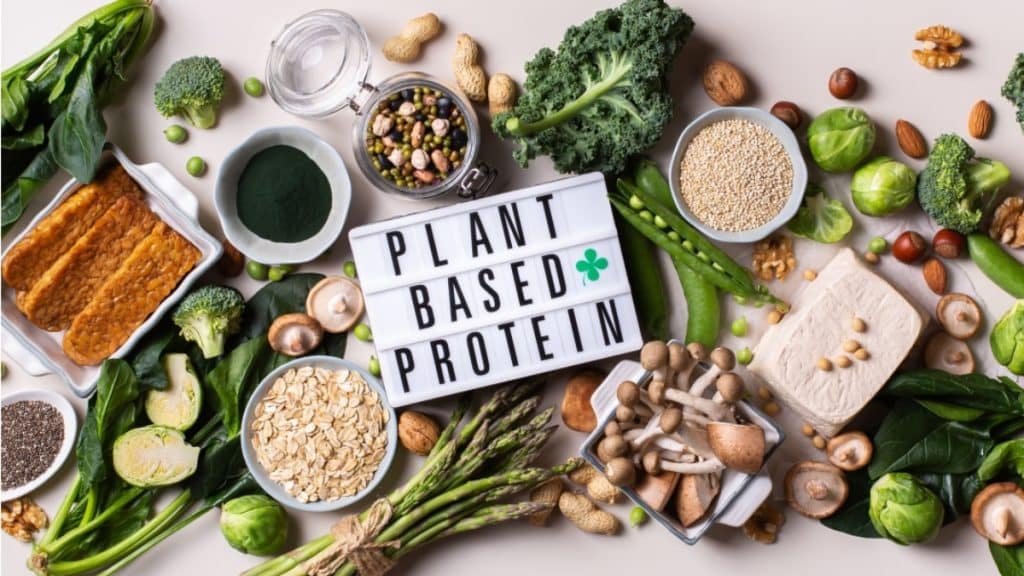It is one of the underrated facts that a plant-based diet can transform your health in many good ways. It can also have a great power to support the environment. However, it is important for you to understand macronutrients first to make sure your body gets everything it needs.
Let’s explore the role of macronutrients for more clarity. Keep reading to find out how you can include them in your plant-based meals to maintain balance and energy.
What are Macronutrients?
Macronutrients are those nutrients that your body requires in large amounts. These include carbohydrates, proteins, and fats. Keep in mind that your body needs all of the mentioned ones in a certain amount for proper functioning.
For example, it is said that carbohydrates fuel our bodies. But, we all should also take care of protein intake due to their great importance. This is because they repair tissues. Also, don’t forget about your healthy fats. They are also of great value as they support brain function and hormone regulation.
Even with a plant-based diet, it is worth mentioning that the right balance of these macronutrients is simple with the right approach.
Carbohydrates are Your Energy Source
Carbs provide the energy that is needed for daily activities and workouts. Therefore, we always prefer to choose complex carbohydrates for long-lasting energy and essential nutrients.
Examples of these are whole grains. These include foods like quinoa and oats. You can also get this constituent from legumes such as lentils and chickpeas. It is also said that starchy vegetables like sweet potatoes also have a good amount of carbohydrates.
But there is one thing more to take care of. You should avoid refined carbs, like white bread or sugary snacks. This is due to the reason of not crashing energy at certain times of the day. Got the point?
Proteins are the Building Blocks
Protein is the building block of the human body. It is said that it is vital for our body’s muscles, tissues, and a strong immune system. That is why you should prioritize its intake for the proper functioning of your body.
There are plenty of protein-rich options in a plant-based diet. So you should take them to ensure the proper protein intake. These include the following.
- Soy products like tofu, tempeh, and edamame are excellent sources.
- Legumes like beans, lentils, and peas are also good for you. They provide a solid protein boost.
- Healthy sources like nuts and seeds are also important.
- Don’t forget about grains like quinoa that can round out your meals with additional protein.
Therefore, it is not wrong to say that combining these different plant-based proteins throughout the day ensures you get all the amino acids your body needs.
For example, it would be great if you pair your brown rice with black beans. This will help you to create a complete protein profile to support your overall nutrition.
Interesting Fact
As we have discussed earlier a balanced plant-based diet contains all the macronutrients, right? But it is also important to mention that effective digestion is key to absorbing those nutrients. So, if you’ve ever wondered about what are the symptoms of a lack of digestive enzymes? Then just know they include bloating, gas, fatigue, or even persistent cravings for sugary foods.
These signs suggest your body might struggle to break down and absorb nutrients. That is why it is great to add enzyme-rich foods like pineapple, papaya, and fermented vegetables to improve digestion and nutrient absorption.
Fats Support Your Overall Health
Healthy fats are essential for your body. They provide energy, help absorb important vitamins, and support brain health. Plant-based diets offer many great sources of fats, such as avocados, nuts, and seeds.
Chia seeds, flaxseeds, and hemp seeds are especially rich in omega-3 fatty acids. All of these reasons convince us to say that they all are crucial for your heart and brain health.
Therefore, when you are choosing fats, you should focus on whole foods like nuts and avocados instead of processed snacks with trans fats. Remember to add olive oil or coconut oil to your cooking for a nutritious boost.
Balance Your Macronutrients in a Plant-Based Diet
You always hear healthcare experts focusing on the balancing of all the macronutrients on the plate. But do you know the real reason behind it? This is because of the fact all of them are equally important for our bodies.
If you are also someone who is confused about how to maintain this balance in a practical way then we are here to help.
- Always remember that the right macronutrient balance is very important for you.
- Keep in mind that a balanced diet depends on your individual needs. That is why you need to know about a general recommendation.
- According to this rule, it is imperative for you to aim for 45–65% of your calories from carbohydrates, 10–35% from protein, and 20–35% from fats.
- Take great care of your daily portions. It is worth mentioning that your diet is truly based on your activity level, fitness goals, and personal preferences. So, plan wisely.
Wrap Up
A balanced diet means all the macronutrients that your body direly needs. It is all about the rainbow plate concept that states we should add a variety of food sources to our diet to ensure we are getting a good diet.
Just focus on your plate and be ready to enjoy the plenty of health benefits of it.

